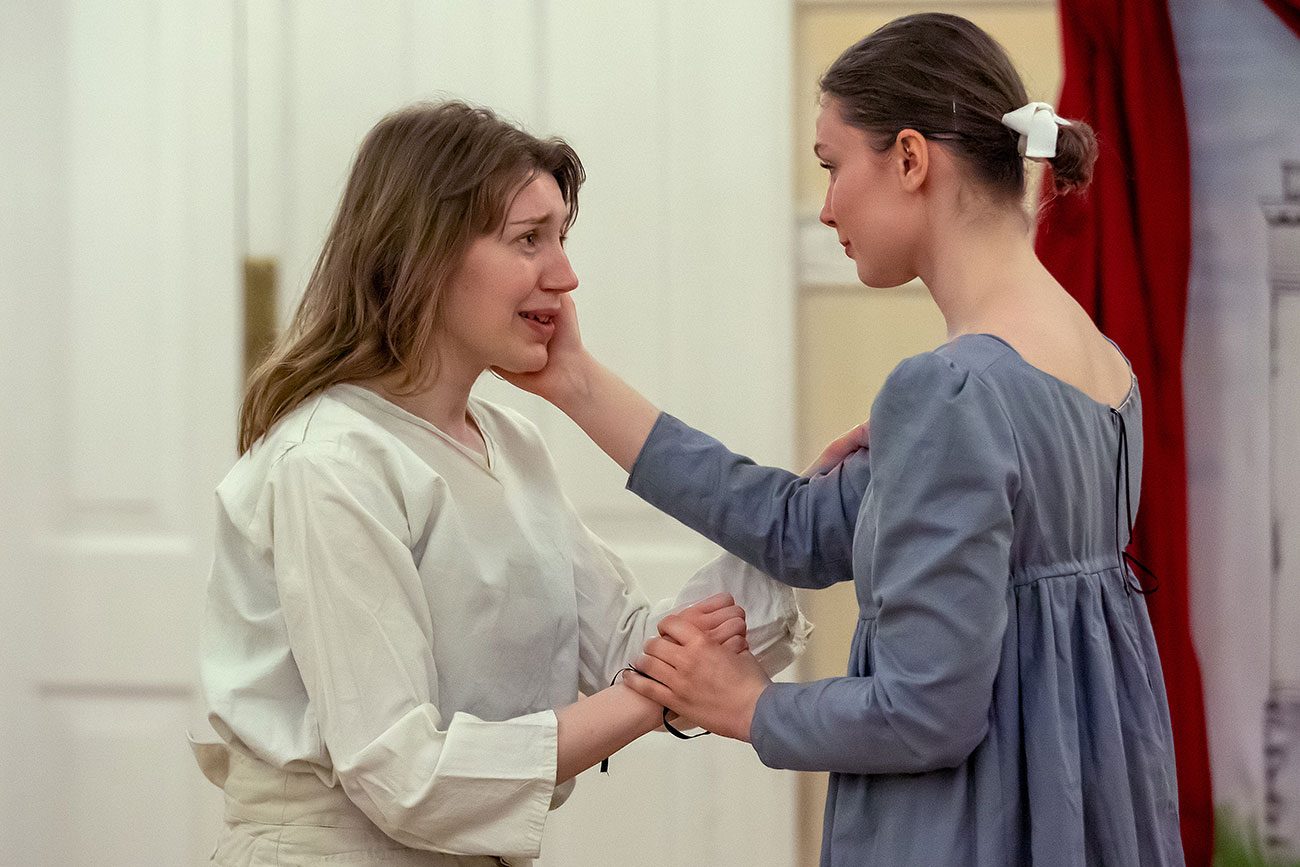York Shakespeare Project’s mission to perform all of Shakespeare’s plays in chronological order over 20 years has reached The Two Noble Kinsmen, the Bard’s final and perhaps most rarely performed play.
Derived from Geoffrey Chaucer’s The Knights Tale, this tragicomedy is a story of love, war, friendship, rivalry and imprisonment, played out in Ancient Greece.
In brief, Arcite and Palamon, two imprisoned Theban warriors, both fall for an Athenian princess, Emilia, casting aside their former comradeship in pursuit of Emilia’s hand.
It is a strange play and even those not too familiar with Shakespeare might notice that his unmistakable tone and rhythm is slightly diluted by co-writer, John Fletcher.
Blokeish chivalry
Their portrayal of ancient Athens is one of a deeply misogynistic society, where men revel in blokeish chivalry and treat the opposite sex as prizes to be fought over and shown off; while women struggle to break free from the bonds placed on them and must accept their imprisoned status in a man’s world.
Jim Paterson gives an engaging and enjoyable performance as Arcite, as does the mellifluous Thomas Jennings as Theseus. It is also pleasing to see YSP regular Nicholas Jones appear as the Doctor and fabulously titled ‘Baboon Handler’, complete with homemade baboon puppet.

Special mention should likewise go to Meredith Stewart as the tragic and screw-loose Gaoler’s daughter, who brings fantastic energy and enthusiasm to a challenging role. Toe-tappingly rustic music is provided by violinist and percussionist Jonathan Brockbank, whose accompaniment to the unexpected but highly enjoyable morris dance was a particular highlight.
The De Grey Ballroom provides a grand setting for this production, ideal for the Regency era look that director Tom Straszekski (a self-confessed admirer of all things late Georgian) has chosen for it.
New and imaginative

The cast blends wonderfully into their surroundings in lovingly-made costumes, not to mention the impressive array of Darcy-esque sideburns sported by some of the male cast members.
Indeed, one of Staszewski’s strengths as a director is the ability to interpret a play by giving it a new and imaginative context, as those who saw his excellent production of Richard II (Bronzehead Theatre, 2015/16) can attest.
With this in mind, it will be exciting to see how he interprets September’s York Mystery Plays, which this year will return to their traditional open air, wagon-based format.
Although this may have been Shakespeare’s final play it is pleasing to see that YSP will be continuing to perform his work beyond this production, despite having achieved the goal they set themselves way back in 2001. Later this year they will be presenting Coriolanus, with Anthony & Cleopatra and Macbeth still to come in 2019.
